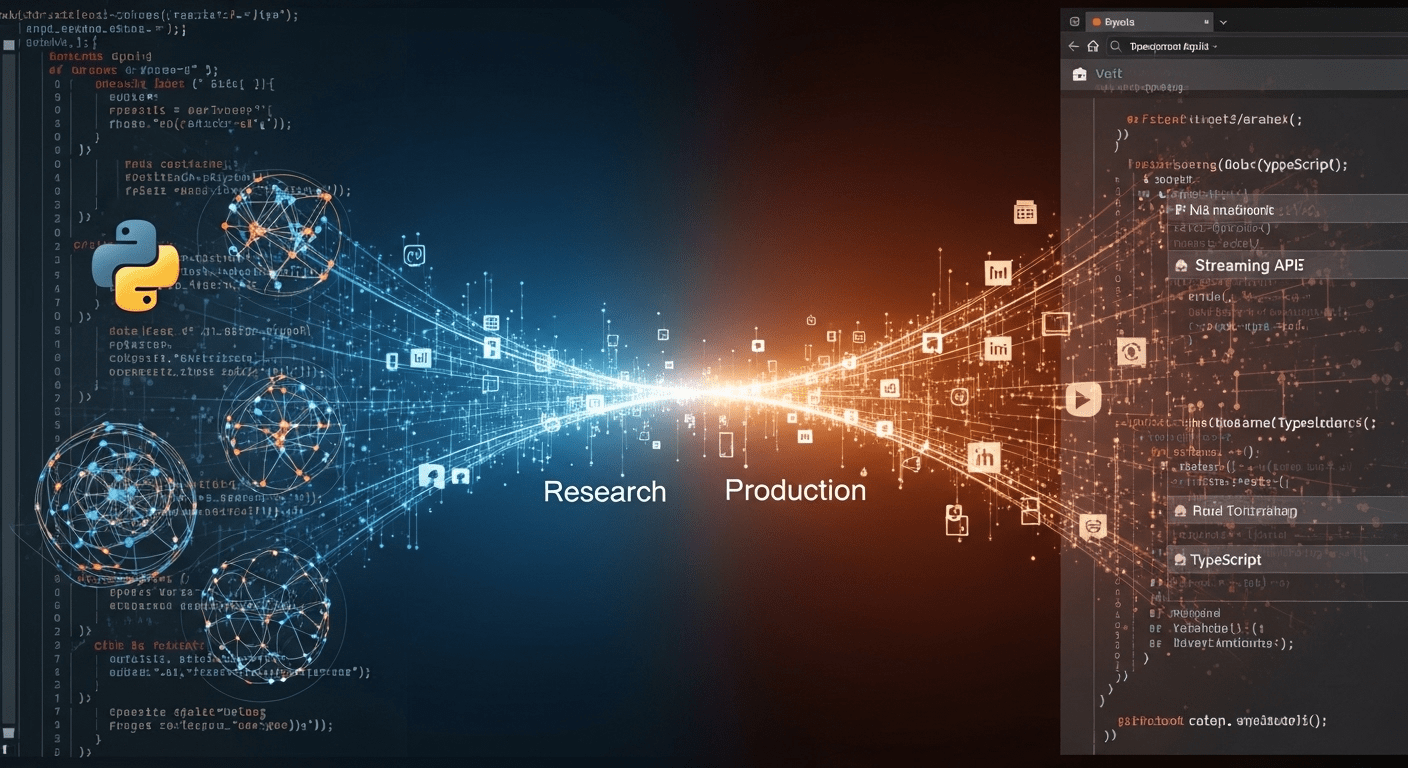Finally: Type-Safe AI in Production (And Why I'm Here For It)

We've been shipping AI applications with our fingers crossed. Parse the LLM output, hope it matches your schema, catch errors in production. It was the wild west.
But something's changing, and I'm genuinely excited about it: production AI is finally getting the type safety and validation it desperately needs.
While working on MCP and looking for examples, I found nearly everyone is using TypeScript and Zod integration. Suddenly, my LLM outputs had compile-time guarantees. No more defensive parsing everywhere. Just predictable, type-safe AI responses.
This isn't about TypeScript versus Python. It's about production AI applications finally becoming as reliable as the rest of our stack.
The Engineering Discipline We've Been Waiting For
Here's what's got me excited about TypeScript in production AI:
Zod + OpenAI: Compile-Time LLM Guarantees
OpenAI's native Zod support means we can define schemas once and get compile-time type checking for AI outputs. This is huge—we're talking about turning unpredictable LLM responses into type-safe, validated data structures. No more runtime surprises.
Vercel AI SDK: Production-Grade Streaming
2M+ developers aren't just using this for fun—they're building reliable, streaming AI features that don't crash in production. The SDK brings proper error handling, and type safety to AI streaming. Finally, streaming AI that feels like production software.
Tools Built on Trust
Anthropic chose TypeScript for Claude Code because production tools need predictability. This is a tool they built for internal use, but TypeScript provides the reliability foundation that production AI tools require.
Why Type Safety Changes Everything for AI
LLMs are inherently unpredictable. They hallucinate, they return unexpected formats, they break schemas. In Python, we handle this with runtime validation and hope for the best. In TypeScript, we handle it at compile time.
The Zod Difference
When this compiles, you KNOW your response will match your schema. No surprises. No runtime errors. Just predictable AI behavior.
This Is Just the Beginning
What excites me most isn't that TypeScript is "winning" in AI—it's that we're finally treating AI applications like real production software:
- Type safety instead of hope
- Validation instead of prayer
- Predictability instead of surprises
- Engineering discipline instead of chaos
Python still owns AI research and training, and that's perfect. But for production applications that users depend on, TypeScript is bringing the engineering rigor we've needed all along.
Pydantic is Trying
I'm using Pydantic as much as I can when in Python. But it's like the Python culture is almost inherently against type safety. Pydantic provides a great way to define and validate data models, but it still feels like an uphill battle to get buy-in from the broader Python community.
Join Me in Building Reliable AI
I'm not here to start a language war. I'm here because I'm excited about building AI applications that don't break in production.
Ready to build type-safe AI? Check out Matt Pocock's workshop: github.com/ai-hero-dev/poland-ai-ts-workshop
What's your experience with AI in production? Are you still fighting runtime errors, or have you found your path to type safety? I'd love to hear about your engineering wins and challenges in building reliable AI systems.
Markdown + AI: The Communication Protocol That Changes Everything
Why Markdown has become the universal language for human-AI collaboration and the foundation of the agentic workflow revolution
Dotfiles: Masterpiece or Late Stage Picasso?
The story of how someone took all my scripts, called them a masterpiece, and how Claude helped me make them actually worth it